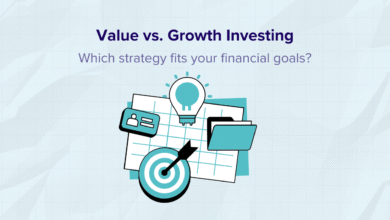Entrepreneurial wisdom: crafting a secure retirement plan beyond business ventures

For entrepreneurs, retirement planning poses unique challenges and opportunities compared to traditional employees. While building and scaling a business is often a primary focus, planning for a secure future beyond the entrepreneurial journey is essential. In this article, we’ll explore key considerations and strategies for retirement planning tailored to the needs of entrepreneurs, empowering them to build a solid financial foundation and enjoy a fulfilling retirement beyond their business endeavors.
1. Start early and set clear goals
Early planning: entrepreneurs should prioritize retirement planning early in their entrepreneurial journey, leveraging the power of compounding and long-term investment growth to build wealth over time. Starting early allows for greater flexibility in setting aside funds for retirement and achieving financial independence.
Goal setting: define clear retirement goals based on lifestyle preferences, desired retirement age, and expected expenses. Assess current financial resources, projected retirement income needs, and potential sources of retirement income, such as investment portfolios, retirement accounts, and business assets.
2. Diversify income streams and investments
Income diversification: entrepreneurs should diversify their income streams beyond their primary business to mitigate risks and ensure financial stability in retirement. Explore opportunities for passive income generation, such as rental properties, dividends from investments, royalties, or consulting services.
Investment diversification: build a diversified investment portfolio consisting of a mix of asset classes, including stocks, bonds, real estate, and alternative investments. Diversification helps spread risk and optimize returns, safeguarding retirement savings against market volatility and economic downturns.
3. Maximize tax-advantaged retirement accounts
Solo 401(k) plans: entrepreneurs with no employees, or only a spouse, may benefit from solo 401(k) plans, which allow for higher contribution limits compared to traditional iras. Solo 401(k) plans offer tax-deferred growth and flexible investment options, enabling entrepreneurs to maximize retirement savings while reducing taxable income.
Sep-iras and simple iras: simplified employee pension (sep-ira) and savings incentive match plan for employees (simple ira) are alternative retirement savings options suitable for self-employed individuals and small business owners. These plans offer tax benefits and employer contribution options, providing entrepreneurs with retirement planning flexibility.
4. Plan for business succession or exit strategy
Business continuity planning: entrepreneurs should develop a comprehensive business succession plan or exit strategy to ensure a smooth transition of ownership and management when planning for retirement. Consider options such as selling the business, transferring ownership to family members or employees, or liquidating assets to fund retirement.
Valuation and assessment: conduct regular business valuations and assessments to determine the fair market value of the business and evaluate its suitability as a retirement asset. Seek professional advice from business advisors, valuation experts, and legal counsel to navigate complex succession planning decisions effectively.
5. Seek professional financial advice
Consult with financial advisors: entrepreneurs should seek guidance from qualified financial advisors, wealth managers, and retirement planning specialists to develop personalized retirement strategies aligned with their goals and risk tolerance. Financial advisors can provide expertise in investment management, tax planning, estate planning, and retirement income distribution strategies.
Regular reviews and adjustments: regularly review and update retirement plans in response to changes in personal circumstances, market conditions, and regulatory developments. Adjust investment allocations, contribution levels, and retirement income strategies as needed to stay on track towards achieving retirement goals.
Conclusion: securing a bright retirement future
In conclusion, retirement planning for entrepreneurs requires careful consideration, proactive decision-making, and strategic foresight to build a secure financial future beyond the entrepreneurial journey. By starting early, diversifying income streams and investments, maximizing tax-advantaged retirement accounts, planning for business succession or exit, and seeking professional financial advice, entrepreneurs can lay the groundwork for a fulfilling retirement and enjoy the rewards of their hard work and dedication. Embrace the entrepreneurial spirit in retirement planning, and take proactive steps to secure a bright and prosperous future beyond the world of business.



